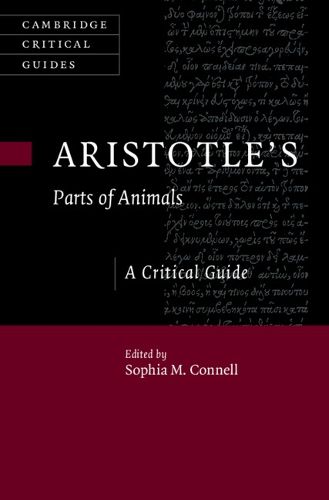Readings Newsletter
Become a Readings Member to make your shopping experience even easier.
Sign in or sign up for free!
You’re not far away from qualifying for FREE standard shipping within Australia
You’ve qualified for FREE standard shipping within Australia
The cart is loading…






Aristotle's Parts of Animals is a foundational text in both the history of philosophy and the history and philosophy of biology. Critically important for understanding his mature philosophical programme, the Parts of Animals has two chief aims. PA Book I is an introduction to the study of animals and plants and provides preliminary considerations for how to investigate all aspects of their nature. PA Books II-IV is the most comprehensive example of the application of Aristotle's philosophical methodology to real world examples of substances, that is, to animals. In this book, a team of international experts cover topics such as Aristotle's exhortation to study biology, his methodology in the study of natural entities and kinds, the study of mind as part of nature, his analysis and use of concepts such as essence, substance, definition, matter, form, species, analogy and teleology, and the influence and legacy of the text.
$9.00 standard shipping within Australia
FREE standard shipping within Australia for orders over $100.00
Express & International shipping calculated at checkout
Stock availability can be subject to change without notice. We recommend calling the shop or contacting our online team to check availability of low stock items. Please see our Shopping Online page for more details.
Aristotle's Parts of Animals is a foundational text in both the history of philosophy and the history and philosophy of biology. Critically important for understanding his mature philosophical programme, the Parts of Animals has two chief aims. PA Book I is an introduction to the study of animals and plants and provides preliminary considerations for how to investigate all aspects of their nature. PA Books II-IV is the most comprehensive example of the application of Aristotle's philosophical methodology to real world examples of substances, that is, to animals. In this book, a team of international experts cover topics such as Aristotle's exhortation to study biology, his methodology in the study of natural entities and kinds, the study of mind as part of nature, his analysis and use of concepts such as essence, substance, definition, matter, form, species, analogy and teleology, and the influence and legacy of the text.